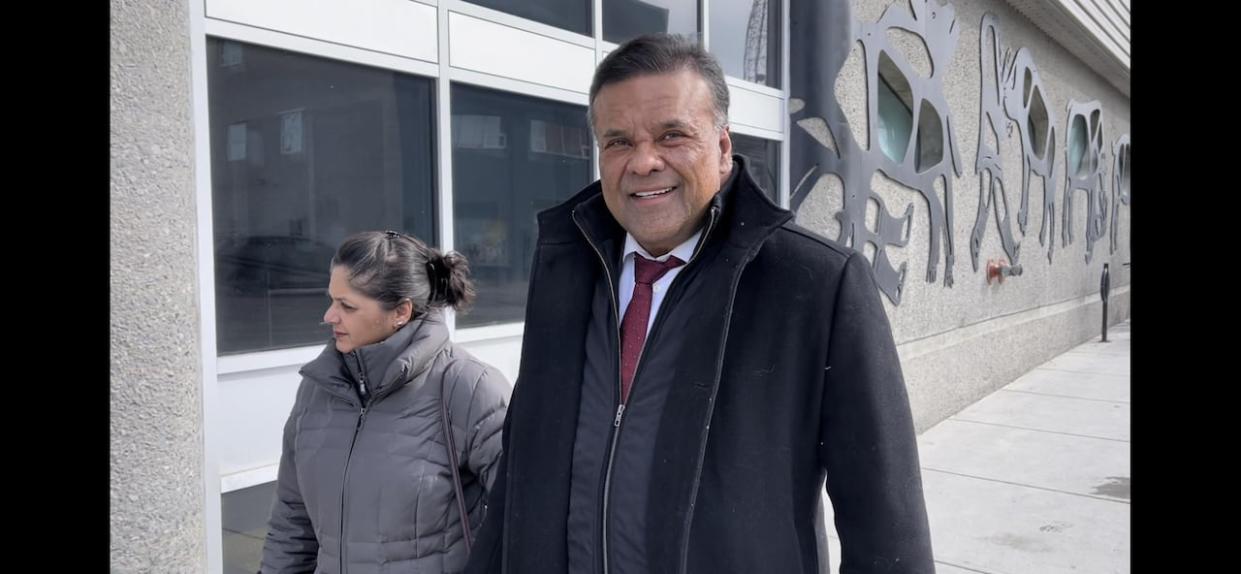Lawyers for Ron Barlas respond to 'scandalous' evidence from Łutsel K'e Dene First Nation

Lawyers for Ron Barlas say Łutsel K'e Dene First Nation (LKDFN) have massively overstated their case, taken evidence out of context and downplayed exonerating evidence.
Barlas is accused of funnelling close to $12 million of LKDFN money into his own companies while employed as CEO of the First Nation's business arm, Denesoline Corporation.
He continues to deny all accusations.
Counsel for Barlas laid out his defence in a Yellowknife courtroom Tuesday and Wednesday, with Barlas and his wife in attendance.
The defence argued Iqbal Bhatti, a former Denesoline employee, has a "personal vendetta" against Barlas, and shaped the bulk of the accusations — instead of the community.
Defence lawyers revealed Bhatti is currently under investigation for fraud — a fact that was left out of the initial affidavit.
Bhatti acted as the initial whistleblower after sending an anonymous email to LKDFN in 2022 alleging Barlas was stealing money.
Although Barlas previously paid $20,000 for Bhatti and his family to move to Canada, lawyers say he later made a complaint about Bhatti's immigration status and engineering credentials. Bhatti was later fired by Barlas.
Holding Barlas to 'higher standards' than past CEOs
The role of Tom Lockhart, a Łutsel K'e community elder and former director of LKDFN companies, was also called into question.
It's been alleged by LKDFN lawyers that Lockhart did not understand the "joint venture'" contracts presented to him by Barlas, something the defence says is unlikely given his decades-long experience on regulatory boards.
When Lockhart hired Barlas in 2014, LKDFN was overseeing four joint venture agreements.
Lawyers referenced Lockhart's previous cross-examination, saying it was clear he "understood generally" after he accurately defined various regulatory terms.
The defence also alleges Barlas was authorized to use Lockhart's electronic signature on multiple occasions, a fact LKDFN lawyers have classified as forgery.
Barlas' team scoffed at the idea he would be able to convince KPMG, a major international accounting firm, to engage in this type of fraud. Members of LKDFN previously suggested statements by KPMG were misleading.
Crunching the numbers
The lawyers said Barlas only changed his employment contracts once he had generated significant revenue for the First Nation, and the initial job description remained the same from its previous holder, Roy Shields.
The lawyers said in the first three years of his employment, Barlas increased LKDFN's annual revenue from $300,000 to close to $4 million.
"To say LKDFN didn't benefit from Ron Barlas is far from the truth" the defence told Justice Karan Shaner.
Lawyers also painted Barlas as eccentric and larger than life, but said he never engaged in illegal activity.


